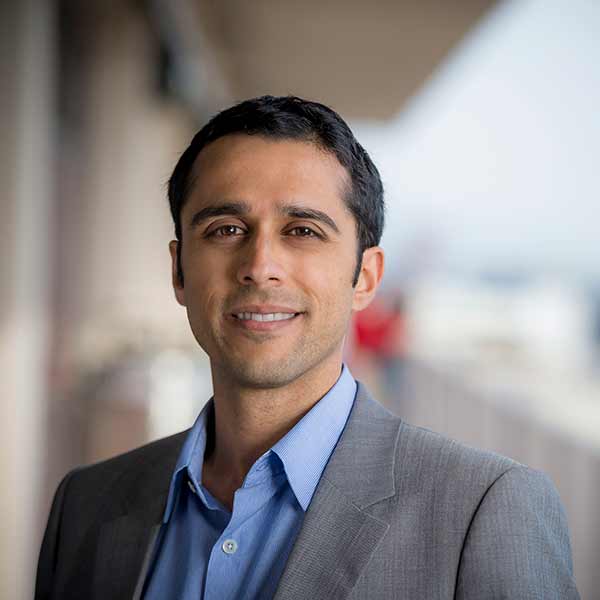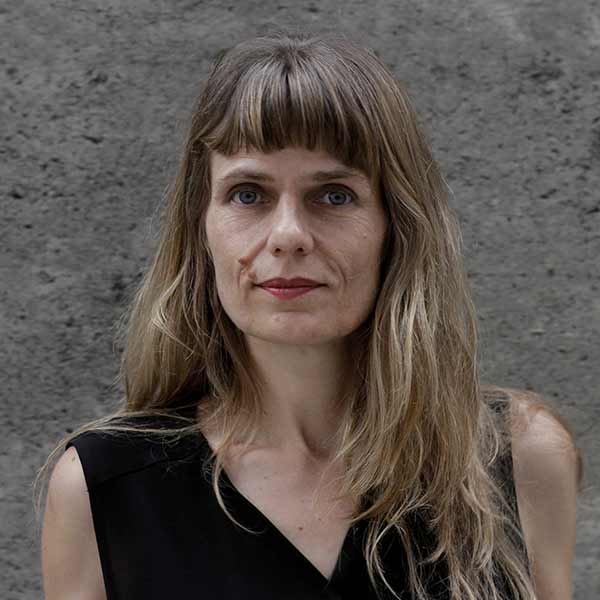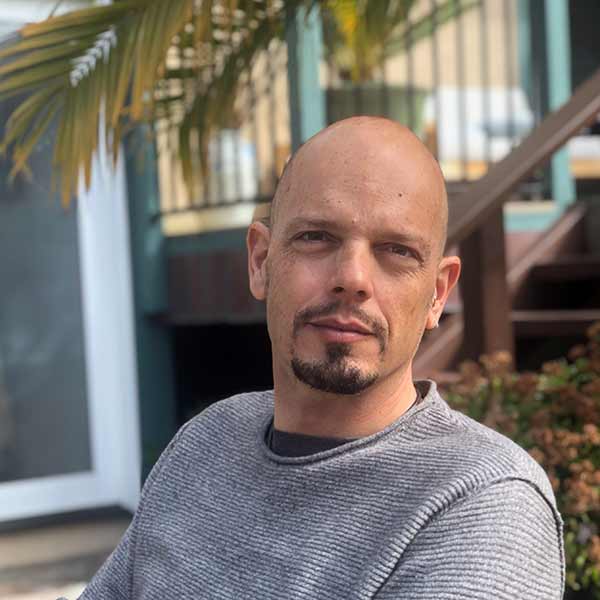By:
- Cynthia Dillon
- Daniel Kane
- Anthony King
Published Date
By:
- Cynthia Dillon
- Daniel Kane
- Anthony King
Share This:
UC San Diego New Guggenheim Fellows Shine Excellence
Chemical biologist, composer and engineer gleam in pool of nearly 3,000 applicants
Origins of life. Movement and sound. Digital information. These are the academic waters from which three University of California San Diego professors emerged as 2019 Guggenheim Fellows. The faculty members from the Departments of Chemistry and Biochemistry, Music and Electrical and Computer Engineering are among the 168 scholars, artists and writers chosen for fellowships in the U.S. and Canada by the Board of Trustees of the John Simon Guggenheim Foundation. Their prior achievements and exceptional promise in their respective fields helped them rise to the top among a sea of would-be fellows.
“Of the 168 Guggenheim Fellowships awarded this year in the United States and Canada, three of them are from UC San Diego,” said Chancellor Pradeep K. Khosla. “Recognition of the innovative work of Neal Devaraj, Katharina Rosenberger and Massimo Franceschetti is a testament to multidisciplinary, collaborative research happening in both the sciences and the arts here at UC San Diego.”

Neal Devaraj. Photo by Erik Jepsen/UC San Diego Publications
On the origins of life
In the spirit of the Guggenheim Fellowship, the UC San Diego trio lifts the educational, literary, artistic and scientific power of this country, while fostering international understanding. For example, Neal Devaraj explores the development of synthetic cells through his research interests in bioconjugation, chemical biology and bottom-up synthetic biology. The winner of the 2019 Eli Lilly Award in Biological Chemistry, and the 2018 Blavatnik National Laureate in Chemistry, Devaraj focuses on understanding how simple organic molecules assemble to form life. His quest has led to the development of approaches for selectively synthesizing cell membranes by stringing together lipid fragments. The professor of Chemistry and Biochemistry and members of his team in the Devaraj Group at UC San Diego created the first perpetually self-producing lipid vesicles as well as artificial membranes capable of remodeling their chemical structure. Recently, his lab demonstrated that in-situ synthesis can assemble lipid species within living cells, enabling studies that decipher how lipid structure affects cellular function.
“It is an incredible honor,” said Devaraj. “Receiving this award will further enable our work on developing synthetic cells, and it encourages my team to continue taking risks as we pursue ambitious projects at the interface of chemistry and biology.”

Katharina Rosenberger. Photo by Hans Gut
On sound production and experience
Composer and Department of Music professor Katharina Rosenberger takes an interdisciplinary approach to her work. With the Guggenheim Fellowship, she will confront traditional performance in terms of how sound is produced, heard and seen. She plans a new collaboration to investigate the relationship of body and movement to sound by working with [Switch~Ensemble], a group whose core members include music graduate students Madison Greenstone and Tyler J. Borden.
Rosenberger envisions attaching a variety of close-up and contact microphones to the heads and wrists of instrumentalists, as well as inside individual instruments, to collect sound data that will be useful in understanding the nuance of performance and composition. She also plans to include a similar visual counterpoint, focusing on performance gestures, which will enhance the audience’s understanding of how sound is produced; for example, cymbals or piano-strings vibrating and lips pursing on instruments.
“[The Guggenheim] is an incredible encouragement, and push to keep going, to always expose myself to new ideas and challenges, to dare, to fail and then make it better, and to think forward both independently as well as within a team of collaborators,” Rosenberger said.

Massimo Franceschetti. Photo courtesy of the Jacobs School of Engineering
On communications in sensor systems
Massimo Franceschetti, an electrical and computer engineering professor at the Jacobs School of Engineering, is changing the way engineers think and talk about digital information with potentially worldwide impact. Sensor systems that enable autonomous vehicles to identify pedestrians, bikes, cars and everything in between offer a window into his work. Consistent performance of these safety-critical control systems must be guaranteed to keep people safe. The communications channels the sensor systems rely on are traditionally described based on “average performance.” While average performance is fine for transmitting the data packed into emails and phone calls, it isn’t acceptable when it comes to a message about a pedestrian running into the path of an autonomous vehicle. Franceschetti’s “big idea” is to think about information differently. By considering information as a non-probabilistic quantity—and to be more precise, as a “deterministic wave”—he is developing new ways to describe and analyze information. His approach aims to describe the behavior of engineering systems not only “on average” but in all cases. It has many potential applications including more reliable communications, remote-sensing, robotics and safety-critical systems.
“My point of view is that information is a physical quantity and there are different mathematical models through which it can be described,” said Franceschetti. “The traditional one is probabilistic and can be used to study average—or in other words—expected behaviors. An alternative model describes information in a non-probabilistic setting, and for some applications this description can have advantages. We are developing this approach, and there is hope that it can help engineers make safety-critical systems safer, or at least to give us better ways to describe the level of safety and reliability that these systems can achieve.”
Franceschetti describes his approach in his 2018 book, “Wave Theory of Information,” and he plans to use his Guggenheim Fellowship to further explore, develop and share these ideas.
This year marks the Guggenheim Foundation’s 95th competition. Among all the 2019 fellows, 49 scholarly disciplines and artistic fields are represented, as are 75 different institutions, 28 states and the District of Columbia, and two Canadian provinces. This year’s class of fellows also range in age from 29 to 85. For more information on the fellows and their projects, visit the foundation’s website.
Share This:
You May Also Like
Stay in the Know
Keep up with all the latest from UC San Diego. Subscribe to the newsletter today.



